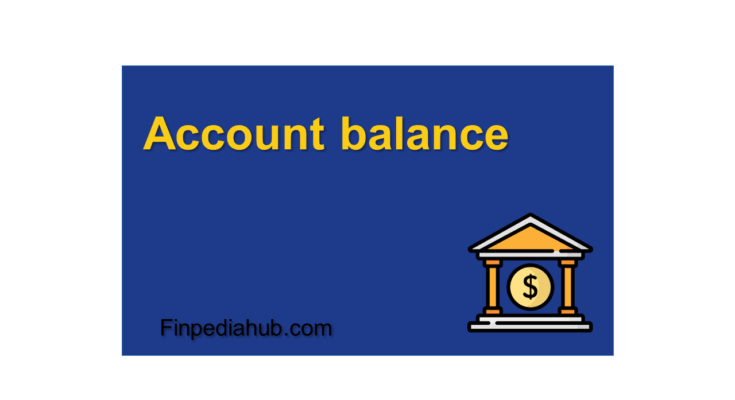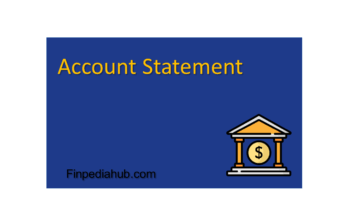The account balance is the total amount of money in a bank account at a given time, including all deposits and withdrawals that have been processed up to that point.
Your account balance shows how much money is currently available—or will soon be available—in your checking, savings, or other financial accounts. Understanding how it works helps you manage your money, avoid overdrafts, and track your financial health effectively.
What Is an Account Balance?
An account balance represents the net amount of money held in a financial account at the start of a business day, after all transactions from the previous night have been processed. These transactions include:
-
Deposits (such as paycheck direct deposits or cash deposits)
-
Withdrawals (like debit card purchases or ATM withdrawals)
-
Fees or charges
-
Interest credited to the account
However, not all the money reflected in your account balance may be immediately available for withdrawal. Some deposits, especially checks, might still be “pending” or “uncleared.” That’s why it’s essential to distinguish between your account balance and your available balance.
Account Balance vs. Available Balance
Although they sound similar, these two terms can differ significantly:
-
Account Balance: The total money in your account, including pending transactions that have not yet cleared.
-
Available Balance: The portion of your account balance that you can actually use right now for withdrawals, purchases, or transfers.
For example, if your account balance is $1,200, but a recent check deposit of $500 is still being verified by your bank, your available balance might only be $700 until the check clears.
How Account Balances Work
Every time you make a transaction, your account balance updates automatically. Most banks calculate and post all transactions at the end of each business day (often overnight).
Here’s how the process typically works:
-
You make a transaction – deposit a check, withdraw cash, or make a payment.
-
The bank records the transaction – it’s posted to your account history.
-
The account balance updates – showing the new total as of the next business day.
Modern online and mobile banking platforms show real-time updates, but official bank records still reflect the start-of-day account balance as the formal amount on record.
Why Knowing Your Account Balance Matters
Monitoring your account balance regularly is crucial for managing your personal finances. Here’s why:
-
Avoid overdrafts: Knowing your current balance prevents you from spending more than you have.
-
Track spending habits: It helps you see where your money goes and plan your budget.
-
Spot errors or fraud: Reviewing your balance can alert you to unauthorized or mistaken transactions.
-
Ensure payments clear successfully: Keeping enough funds ensures bills and automatic payments are covered.
Real-Life Example
Imagine Sarah checks her bank account on Monday morning and sees an account balance of $2,000. However, she knows she deposited a $600 check on Sunday that hasn’t cleared yet. When she logs into her online banking, the available balance shows only $1,400—that’s the actual amount she can use.
By the next day, once the check clears, her available balance and account balance will match again at $2,000.
Tips to Manage Your Account Balance Effectively
-
Check your balance daily through mobile or online banking.
-
Keep a transaction log if you write checks or make frequent transfers.
-
Enable alerts for low balances or large withdrawals.
-
Understand pending transactions before making big purchases.
These simple steps can prevent overspending and help you maintain financial stability.
The Bottom Line
Your account balance is the foundation of good money management. It tells you how much money is in your account at the start of the day, but not always how much is ready to spend. By understanding the difference between your account balance and available balance, you can make smarter financial decisions, avoid fees, and keep your finances under control.


